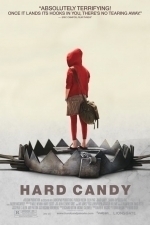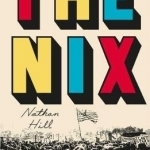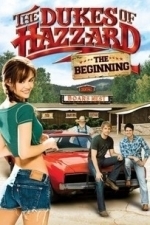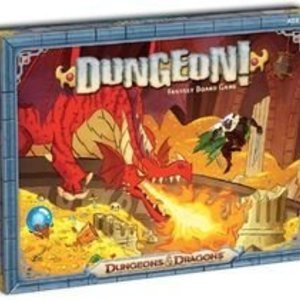
Dungeon!
Tabletop Game
In many ways Dungeon! is similar to Dungeons & Dragons, although much simplified and transformed...
Boardgames D&DBoardgames
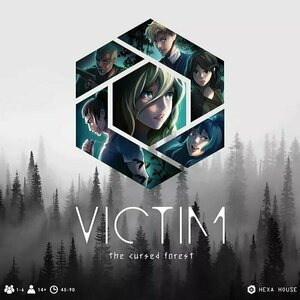
Victim: The Cursed Forest
Tabletop Game
Victim, a horror board game that lets players help each other to find a way out by cooperatively...
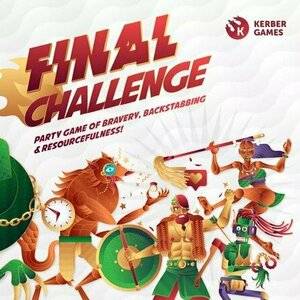
Final Challenge
Tabletop Game
Final Challenge is a party game so packed with action it does not have to pose as a drinking game!...
Phillip McSween (751 KP) rated Hard Candy (2005) in Movies
Feb 21, 2019
Acting: 10
Ellen Page plays the role of the aforementioned teenager Hayley Stark. In a word: Fantastic. I can almost imagine a role of this nature being somewhat freeing and therapeutic. I love the angle that she took as Hayley, calm on the surface but a loose cannon ready to explode. The emotional range here is noticed and appreciated.
Shout-out to Patrick Wilson playing the role of Jeff Kohlver the thirty-something. He, just like Page, excels in playing a multi-dimensional character that has that “other” side. Seeing the two work on screen together is like magic.
Beginning; 10
Characters: 9
The story centers around Hayley and Patrick but, in a way, one could argue that the movie is about four people: Their characters and the ones underneath the surface. The way they play off of each other is fascinating. You want to see more of them, know more about what got them to this point. It’s a cat-and-mouse game and you don’t quite know who’s who.
Cinematography/Visuals: 8
Colors and tones play a significant role in setting the mood of the movie. Again, it’s that eery creepiness Slade manages to capture in every shot, even when things feel normal. Emotional moments are captured in a way that manage to magnify the way a viewer feels. That’s where I feel the visuals succeed the most. On the downside, it got somewhat monotonous having the characters be in one location for the majority of the movie. Maybe breaking it up with flashbacks or something would have made the pill a little easier to swallow.
Conflict: 4
Let’s just say I was expecting a lot more to happen than what actually did. In other words, there was DEFINITELY room for more conflict here. Just slightly more subtle than I was hoping for.
Genre: 5
This score would have been higher had there been just a bit more action and a fluctuation of location changes. While it checks most boxes for what makes a quality movie, I have seen better dramas that are worth the higher score.
Memorability: 7
Pace: 10
Sometimes intensity can magnify a situation and that’s one of a number of things Hard Candy is great at. Because you’re dealing with two characters that are loaded pistols, you don’t really know what’s going to unfold from one scene to the next. That’s ultimately what makes the movie so fun to watch. There is always something to pay attention to here.
Plot: 10
Resolution: 10
Overall: 83
Hard Candy is a great example of why I created my scoring system in the first place. Some movies slip in some areas and they get called a bad movie as a result. When you look at all the moving parts separately, however, you potentially learn the opposite. Is it a perfect movie? Not at all. Is it a solid, fun movie to watch. Absolutely.
Rachel King (13 KP) rated The Elvenbane (Halfblood Chronicles, #1) in Books
Feb 11, 2019
The characters were all well-developed and unique, as the size of the book allowed the writers to spend lots of time focusing on a single character, even if his or her purpose seemed to end rather abruptly with death, such as Shana's mother, Serina Daeth. Normally, I have no trouble picking characters that I favored over the others, but with this book, no character seemed to jump out at me as so much better than the others, even the main character Shana, who seemed to lack in maturity as much as a pre-teen, with how she behaves around some of the other characters.
There were several over-arching themes in the book, such as the need for change, the call for justice, and how every rule has exceptions. Shana especially seemed to find the latter annoying as she continually found that what she was taught about elves, humans, or dragons was not always true. Even though the legend of the Elvenbane is merely a tall tale crafted by the dragons to stir up trouble with the elves and humans, Shana falls into the role by accident simply because of a dragon's kindness. Ironically, her up-bringing gives her the perfect personality for playing that role, as the main goal of this book was to put her in the perfect position to fill this role for the next book in the series, Elvenblood (Halfblood Chronicles).
BankofMarquis (1832 KP) rated West Side Story (2021) in Movies
Mar 7, 2022
Such is the case with Stephen Spielberg’s adaptation of the 1957 Broadway Musical WEST SIDE STORY - it has all of the ingredients to be considered a great film, but it has a problem at it’s core that knocks it down to very good (and maybe just “good”).
The 1961 version of West Side Story, of course, swept the 1962 Oscars, winning 10 Oscars - including Best Picture. This musical, of course, is based on William Shakespeare’s Romeo & Juliet about a doomed love relationship set in a time of battling factions.
There is much to like in this adaptation - and let’s start with Spielberg’s Oscar nominated Direction. It is “spot-on”, for the most part in this telling of this tale, keeping the events rolling, and the tension taught (and rising) throughout the course of the film and orchestrating well deserved Production Design, Sound, Cinematography and Costume Oscar nominations. This film is a treat to watch (and listen to) and is the very definition of a film deserving of Awards. These are all top notch professionals in their fields delivering top notch results and having the Songs of Leonard Bernstein (Music) and Stephen Sondheim (Lyrics) so beautifully depicted is a treat, indeed.
Spielberg, wisely, ethnically cast this movie appropriately. Having Latino performers playing one faction of these warring entities and White performers playing the Anglos in this film is the correct move. Spielberg (and playwright Tony Kushner who adapted Arthur Laurents book) decided to have some of the scenes performed in Spanish (as they would be in “real life”) with no subtitles. As a non-Spanish speaking Anglo, these scenes worked very well for me.
Add to all of this strong performances across the cast. David Alvarez as Bernardo, Mike Faist as Riff, Josh Andres Rivera as Chino all shine as does Iris Menas as Anybodys. Stealing the show, of course, is Ariana DeBose (HAMILTON) as the hot-blooded Anita, a performance that will, IMHO, win the Oscar for Best Supporting Actress. If she does win, she will be the 2nd Actress to win the Oscar for playing this role in a film. Rita Moreno won it in 1961 - and let’s talk about her work in this film. Spielberg, wisely, gender-swapped the “Doc” role in this film - and gave it to Moreno. Her Valentino is the heart and soul of this film and it was a risky, and wise, choice to give Valentino the song “Somewhere” - and it works beautifully. I would have been happy to see the EGOT winning, 90-something year old Moreno get an Oscar nomination as well.
You will notice that the 2 leads - Tony (Ansel Elgort) and Maria (Rachel Zegler) have yet to be mentioned and, therein, lies the problem with this film.
Individually, their performances are “good”. Zegler’s Maria is young, sweet and innocent and she is “pitch-perfect” for this role. Most critics point to Elgort’s work as the reason that this film falls short of greatness and I think that this is unfair to Elgort. Remember, Tony has been tucked away in jail for a few years for almost killing a rival gang member with his fists, so he needs to be somewhat older than the others and he needs to have a temper simmering underneath that is ready to explode. Elgort plays this role as Directed by Spielberg and is a good fit for the interpretation of this role as formed through the eyes of his talented Director.
The issue is when Tony and Maria are put together on the screen - there just is no chemistry between the two and the age difference (at least how the 2 characters look and are portrayed on screen) is jarring and is almost creepy. I never felt the love connection between Tony and Maria, a factor that is so important to the spine of this film that when it is missing - as it is here - the movie fell flat.
Ultimately, you have to fault the Director for this and that is too bad, for the other aspects of the film - and Spielberg’s Direction - are so good and so strong that the disappointment of the black hole that is central to this film is crushing.
Letter Grade: A- (heading towards B+)
8 stars out of 10 (it could have…SHOULD HAVE…been a 9 or a 10) and you can take that to the Bank(ofMarquis)
Suswatibasu (1703 KP) rated The Nix in Books
Dec 4, 2017
It spans nearly fifty years, with flashbacks to student protests during 1968, from the present day, and the travails of an academic, struggling to engage with lazy and disaffected students, and playing ‘Elfscape’, an online role-playing game that works along the lines of World of Warcraft. The narrative perspective moves around quite a bit in the first few chapters, but a strong theme quickly emerges.
Samuel Andresen-Anderson is the principal protagonist, and is a genuinely empathetic character. Far from perfect, he is beset with irritations, ranging from the cheating and ignorance of many of his students to the family upheaval suffered during his childhood, which still troubles him more than twenty years later.
Behind all this is the story of Faye, Samuel’s mother, who walked out on her family more than twenty years earlier, and who is catapulted into the public consciousness following a sudden impulsive act. This offered Hill the opportunity for some acute observations about the motives and actions of the student rebels from the late 1960s, while also exposing the hypocrisies of the establishment and the cruelties of some of the police during those troubles. In between, the author even delves into Norwegian folklore.
The writing is fine – clear and accessible - and Hill manages the complex storylines admirably. Moving backwards and forwards between the late 1960s, late 1980s and 2011, the plot never flags. This was a long novel, but very entertaining throughout.
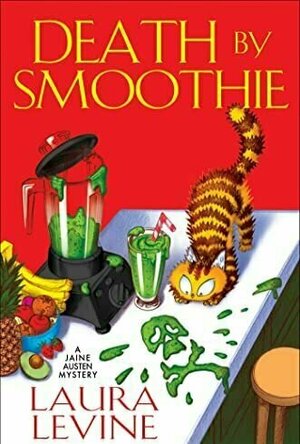
Death by Smoothie
Book
It’s the funny side of homicide in acclaimed TV comedy writer and novelist Laura Levine’s newest...
Jordan Binkerd (567 KP) rated The Dukes of Hazzard: The Beginning (2007) in Movies
Aug 15, 2019

Let's Go Outside: Sticks and Stones - Nature Adventures, Games and Projects for Kids
Book
Let's Outside is the ideal book to take out and about with children aged 3 to 7. It is packed with...
